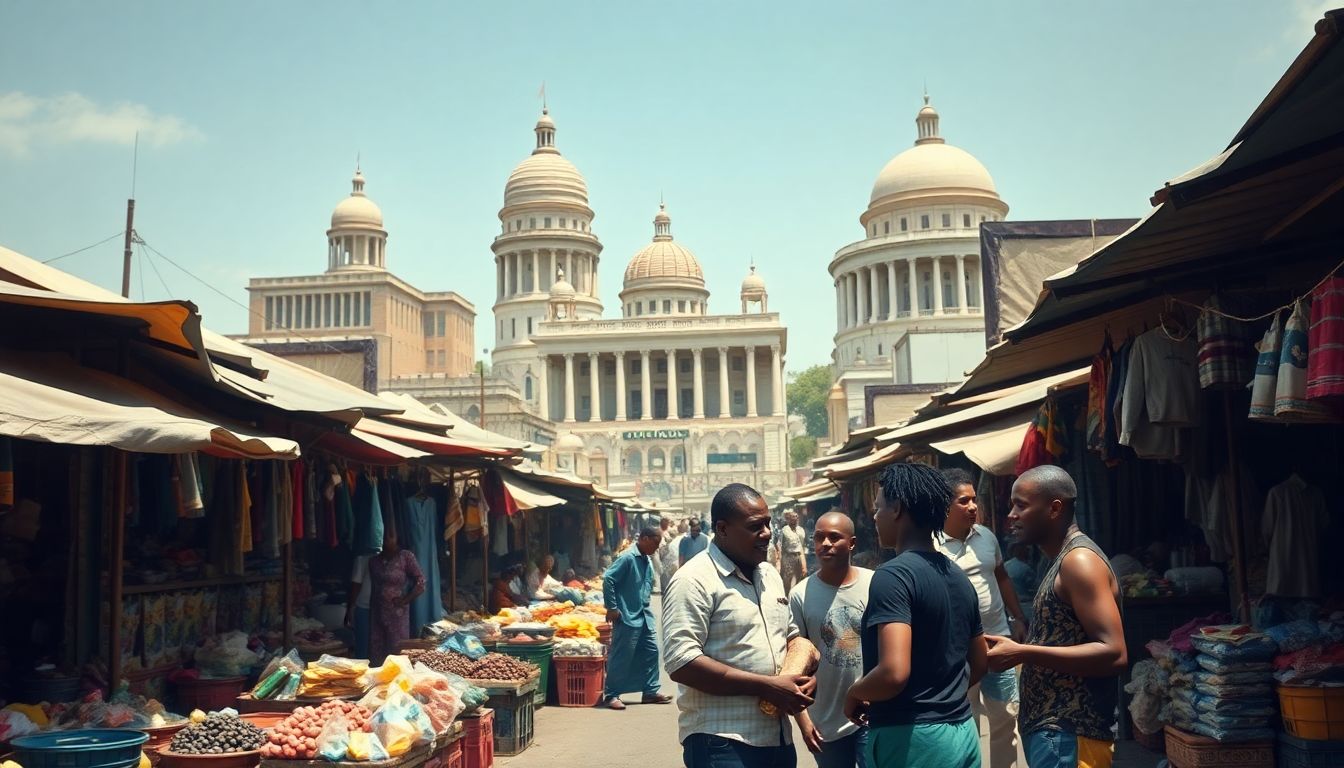High unemployment in South Africa stood at 34% in early 2023, a stark reminder of how economic hardship can lead to political instability. This statistic reveals a critical link between economic conditions and the political environment. South Africa has a long economic history, marked by inequality and mismanagement, influencing the dynamics of power and governance. Economic factors significantly affect political decisions in South Africa, shaping everything from policy making to voting patterns.
The Influence of Unemployment on Political Outcomes
High Unemployment and Social Unrest:
Unemployment rates in South Africa often correlate with social unrest. In 2021, widespread protests erupted when people demanded jobs and government accountability. These demonstrations shaped political dialogues, leading to changes in leadership and policies. High unemployment doesn’t just lead to dissatisfaction; it fuels instability that can change the political landscape.
Unemployment and Voting Patterns:
The jobless rate profoundly influences voter behavior. Studies show that unemployed individuals are more likely to vote for parties that promise job creation. In the 2019 elections, the African National Congress (ANC) faced a decline in support due to rising unemployment, signaling a shift in political allegiance from frustrated citizens.
Government Policies Addressing Unemployment:
The government has launched various policies to counter unemployment, such as the Expanded Public Works Program. However, the effectiveness of these policies often comes under scrutiny, affecting the political ramifications. If citizens see little improvement, trust in the government diminishes, causing a ripple effect in political support.
Inequality and its Political Ramifications
Income Inequality and Social Division:
South Africa has one of the highest income inequality rates globally, with a Gini coefficient of 0.63. This stark divide breeds social tension and political polarization. For example, the wealthy often have access to better services, leading to frustration among poorer communities, fueling political dissent.
Land Reform and Political Tensions:
The land reform debate is deeply tied to economic inequality. Striving for land redistribution has sparked heated political arguments, highlighting the economic significance of land ownership. Experts argue that successful land reform could uplift marginalized communities, but failure to address these issues could destabilize the political scene.
The Role of Inequality in Shaping Policy:
Inequality informs government policies and political dialogue. Leaders frequently discuss measures to close the gap, affecting party platforms. For example, the Economic Freedom Fighters (EFF) leverage the inequality narrative to attract votes, portraying the ruling party as out of touch.
The Impact of Resource Distribution on Political Power
Resource Allocation and Political Patronage:
In South Africa, resource distribution, especially from mining revenues, plays a key role in political patronage. Politicians often utilize these resources to secure loyalty from constituents. This practice can create power struggles among different factions within the ruling party, further complicating governance.
Competition for Resources and Conflict:
Struggles over limited resources can lead to conflict and political instability. For instance, mining communities often engage in protests due to labor disputes or environmental concerns. These conflicts can escalate, influencing national political agendas.
The Influence of Global Commodity Prices:
Fluctuations in global commodity prices affect South Africa’s economy and, in turn, its political decisions. When global prices for key exports like platinum and gold rise, the government may respond with policies favoring these sectors, impacting political priorities and alliances.
The Role of Economic Growth in Political Stability
Economic Growth and Political Support:
Economic growth often translates into increased support for the ruling party. When the economy flourishes, the public tends to rally behind leadership. In 2010, South Africa experienced growth, and the ANC enjoyed significant electoral success. But when growth falters, so does public support, leading to potential instability.
Economic Recession and Political Instability:
Recessions can incite social unrest and political upheaval. The 2008 financial crisis led to protests and calls for changes in leadership as citizens blamed the government for economic mismanagement. Such downturns can dismantle decades of political stability.
Government’s Economic Policies and their Political Impact:
Government economic policies, like austerity measures, often lead to discontent among citizens. Policies that tighten budgets can spark protests and impact voter sentiment. Thus, economic decisions have direct political implications, influencing future elections and governance.
Foreign Investment and Political Influence
Foreign Investment and Economic Growth:
Foreign investment plays a crucial role in South Africa’s economy. Many infrastructure projects rely on external funding, making the country’s economic health reliant on global perceptions. Political decisions grow around encouraging foreign investment to support economic stability.
Foreign Policy and Economic Interests:
There’s a direct link between foreign policy choices and economic interests. Decisions that favor trade agreements or partnerships often aim to boost economic growth. This relationship highlights how economic motives can drive political strategies.
The Influence of International Organizations:
Institutions like the IMF and World Bank impact South Africa’s economic policy. Their recommendations can shape political discourse, especially during economic crises. Governments often face pressure to adhere to these suggestions, which can lead to tense political climates.
Conclusion
Economic factors undeniably influence political decisions in South Africa. From unemployment rates to income inequality and resource distribution, these elements shape the political landscape significantly. Understanding the connection between economic conditions and political decisions is vital for both policymakers and citizens. As the country moves forward, a balanced approach addressing economic and political challenges is essential for stability and growth.
